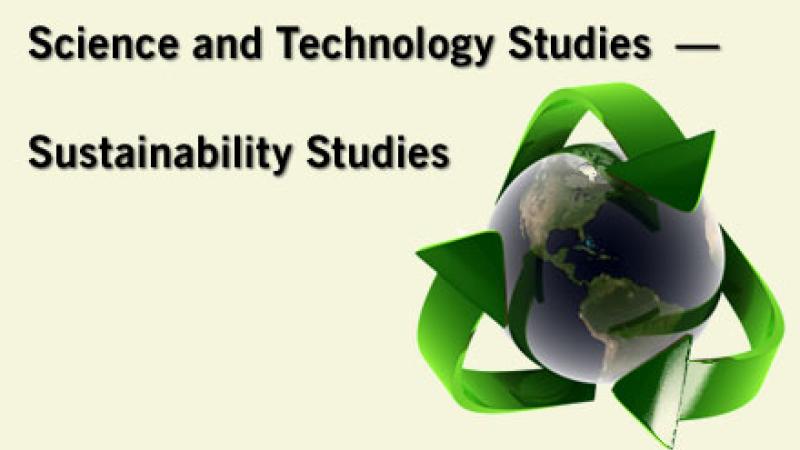Degree Pairs Techniques and Insights of Social Science With Technical Education
February 2, 2012

Rensselaer Polytechnic Institute is launching a new undergraduate major in sustainability studies through the School of Humanities Arts, and Social Sciences. The new major, which results in a B.S. in Science and Technology Studies - Sustainability Studies, is an option that crosses disciplinary boundaries by design at the nation’s oldest technological university.
“This program layers a rich liberal arts education on top of Rensselaer strengths in technical and scientific education,” said Kim Fortun, professor of science and technology studies, and a leader in the process. “It’s designed both as a stand-alone major that will provide new humanities and social science offerings and a degree, but also one that pairs really well with other fields like physics, computer science, and biology.”
Fortun said sustainability has emerged as a key public concern globally, nationally, and also at Rensselaer, where the growth of sustainability-oriented student clubs and initiatives on campus coincides with an increased demand for curriculum addressing issues of sustainability.
“In learning to think about sustainability and learning to think about complex problems in societies in general, this degree program provides an important set of conceptual and critical skills that are widely applicable beyond sustainability issues,” Fortun said. “And given the increasing importance of sustainability as a national and global concern, we need people that are well educated to provide leadership and coordinate the efforts to respond to that.”
The B.S. in STS - Sustainability Studies weaves together techniques and insights from the humanities and social sciences with knowledge from the natural sciences and engineering to address environmental problems. From the humanities and social sciences, students learn the history of environmental thought and law, and study current environmental controversies, sustainable pathways, and design. They also complete a “technical option”—a suite of four courses, in disciplines such as biology, geology, or physics, to develop technical expertise.
Mary Simoni, dean of the School of Humanities, Arts, and Social Sciences, welcomed the launch of the new program.
“This timely and cogent curriculum in sustainability studies will prepare students to be responsible leaders in an increasingly complex milieu of culture, economics, and the environment,” said Simoni.
The Sustainability Studies degree will be offered by the Department of Science and Technology Studies within the School of Humanities, Arts, and Social Sciences. The department—one of the oldest and most respected departments of science and technology studies in the nation—also offers two popular undergraduate programs in Science and Technology Studies (STS), and Design, Innovation and Society (DIS), as well as a Science and Technology Studies master’s and doctoral degrees.
The state of New York granted approval for the new undergraduate degree program during fall 2011, and several matriculated students have already declared their intent to seek the degree. Fortun said the degree is likely to attract students interested in using sustainability studies to guide their use of knowledge from another degree offered at Rensselaer.
“Double-majors who combine STS sustainability studies with biology, geology, earth sciences, or environmental engineering are an obvious choice. But what some people forget is that math is a great pair because so much sustainability research involves computer modeling—to figure out, for example, what a wetland will look like in 10 years if you build a road across it,” Fortun said. “There are a lot of unexpected pairings that will be really great – math, computer physics, chemical engineering, and civil engineering.”
Students can also minor in STS - Sustainability Studies. The minor is especially popular with architecture students, and with students pursuing double majors in two engineering fields.
Graduates may go on to graduate school, or enter careers in environmental policy, management, and research in government, industry, and in nonprofit organizations, said Fortun.
Nick Lawrence is one of the first students to enroll in the program, and will earn a dual degree in sustainability studies and mechanical engineering. Lawrence said he has a “keen interest” in using engineering to tackle sustainability problems, particularly in the realm of sustainable energy.
“I’m interested in where we get our energy from, where we use it, how efficiently we use it, and how this affects the environment," Lawrence said. "Current sources of energy such as coal and oil are not only finite but damaging to the environment and carry inherent risks. ... I hope to use all I learn about sustainability as a guide for my mechanical engineering skills.”
Examples of research within the field include alternative systems of food production and distribution; causes and consequences of the 2010 Gulf of Mexico Deepwater Horizon disaster; factors shaping the global asthma epidemic; water rights in countries around the world; evaluation and regulation of toxic chemicals at the U.S. Environmental Protection Agency; causes and consequences of the global bee colony collapse; and the future of nuclear energy production in light of the Fukushima nuclear disaster.
Courses in the program include: Sustainability Debates, Environment and Society, Oil Politics, A Century of Environmental Thought, Food, Farms and Famine, Sciences of Sustainability, Globalization and Development, Consumer Culture, Environment and Law, Sustainability Research.